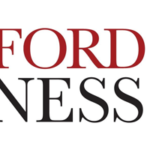What Employees Really Want
In one of the most highly competitive job markets ever, you would think that less attention may be paid to what employees want from their prospective employers as companies may feel they can be more selective.
However, this is NOT THE CASE. Our world is focused on transparency, yet real views on what is desired from a workplace are evolving as Millennials become the predominant force in the marketplace. People are ready to carve out the workplace of their future with a new zest. While it may be difficult to pin down and accurately label Millennials [many have tried], one thing is clear: Boomers & Millennials want both many similar and different things from a job at the same time. A recent study asked Millennials and Boomers what they were seeking in a first job. Believe it or not, Boomers were more apt to search for job opportunities that paid well or had an opportunity to learn new skills while a majority of Millennials sought out positions they found enjoyable or felt made a difference. Nonetheless, our research shows both groups are now looking for it all. There has also been a lot of chatter about Millennials being the purpose-driven generation – their need for a mission. Yet, Millennials like money too and overbroad categorization creates problems that persist. So you ask, what is it Millennials and the now coming up Gen Z’s really want?
And what are the costs associated with not knowing what that is?
You Can’t Afford Not to Know what Millennials Want
The US economy wastes $30.5 billion dollars annually on Millennial turnover. The problem can be measured by its economic impact and the way it impacts company culture.
Millennials currently make over one-third of the workforce and growing. Almost 50% of Millennials say they anticipate leaving within the next twelve months. On average, those same Millennials can generate a $150,000 in revenue each and every year for the companies they plan on leaving. Beyond this loss, companies now need to spend to replace the Millennial who just bolted to a more attractive opportunity. This includes advertising, interviewing, training, onboarding and can add up to anywhere from 50 to 100% of an employee’s annual salary.
These are only the economic costs.
What about the way turnover impacts company culture?
In The Impact of Staff Turnover on Workplace Demands and Coworker Relationships, the author highlights the cultural impact caused by Millennial turnover. The study noted that employees who remain report increased levels of stress, inadequate support and staffing, poor communication, and a lack of collaboration. The study concluded that in order to ease these tensions, workplaces should promote communication and collaboration.
What does this mean for us?
Give the “people” what they want.
What Millennials Want
“Give the people what they want, and they will come.” And, more importantly, they will stay. Attracting top talent can be difficult enough. It’s even harder to keep them. One report indicated that Millennials do more job hopping than any other generation Two-thirds of Millennials “strongly agree” that career advancement is important according to the Millennial Influence Report. Another study conducted by The Society for Human Resource Management reported that “94% of Millennials want to use their skills to benefit a cause” and almost half wish that there were more company-wide service days, days spent away from the workplace and volunteering for a unified cause. When we dig deeper into the data and get honest with ourselves, a clear picture begins to emerge about what Millennials want – connection, coaching, and contribution.
Connection
Millennials want to feel connected: to the leadership of the company and its mission.
The days of disconnected leadership – authoritative, dictatorial management where leadership possesses the answers and the money – are over. Millennials prefer a non-hierarchical form of leadership where their leaders are in service to their evolution as individuals and employees. Flat organizational structures encourage communication and collaboration and allow employees to feel connected to their colleagues and leadership. In addition, Millennials prefer impact over income. Consider that Millennials regularly state that they’d take less income to work for a company where they felt they were making a positive impact in the world. It is no longer enough to pay employees well. Companies must also practice social responsibility and be authentic and transparent with their mission. Millennials not only want to feel connected to their leadership but they want to feel connected to a company’s mission and the community it impacts.
Coaching
Millennials want capability. More than anything they want to learn and grow from their jobs. This requires great feedback! Unfortunately, this is categorized as them being narcissistic and/or needy. Forget that BS, we all were young once, so let’s take a second to analyze it opportunistically. Millennials, and actually most of us would prefer the opportunity for constant improvement. More importantly, the employees are asking for it! Remember the Platinum Rule: treat people how they want to be treated. Millennials report feeling “blindsided” annual or quarterly performance reviews and often say they don’t know how the leadership feels about them or their performance. Instead of annual reviews, offer regular feedback geared towards creating positive change and provide opportunities for Millennials to seek that feedback on their own. Empower them with the tools they want, and need, to succeed. Allow them to impress you.
Contribution
Let’s take a look at one of the patterns emerging here. We’ve said that Millennials would rather take less money to make an impact AND what constant feedback. What does this mean for us? Ultimately, Millennials want to feel as though they are making a contribution. Millennials have reported wanting more opportunities to contribute to causes at work, such as service days where employees have the opportunity to take the day off to volunteer. A number of leading companies are offering opportunities and incentives for employees to participate in programs making an impact in their community. When employees receive the opportunity to volunteer, their job satisfaction increases and the community involvement improves the brand’s reputation. With consumers reporting that a brand’s reputation is more important for their product, this is an obvious win-win.
The Three C’s
Millennials are not difficult to decode. They crave transparency and authenticity. They desire opportunities for connection, coaching, and contribution.
It’s important to remember: we’re on the same team here. Millennials and the other generations are all after the same thing. If one generation loses, we all lose. If one wins, we all win. An organization’s employees are working towards a common end. Bridging the gap between organizations is essential for success. Ultimately, Millennials are people, like the rest of us, who aim to create better businesses organizations, and results.
Does your organization need help implementing programs that encourage the three C’s? Shoot us an e-mail at dan@launchbox365.com or call us at 858.314.9867 and we’d be happy to share a few things you can do to make a positive change in your company. Together, we can bridge the gap and help generations work effectively, efficiently, and productively.


